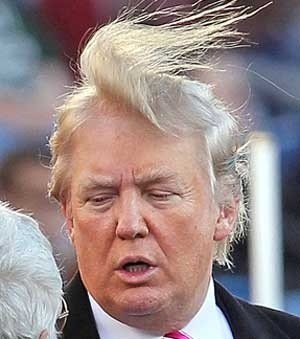The fact that Trump, Bannon and the rest of their coterie do not think through the implications of their acts is not unusual. One marked peculiarity of politics in capitalist systems is how those systems train politicians. Corporations and the rich provide the funds that enable election victories. They expect specific favors in return: a government order, a tariff, crisis bailouts, or a foreign intervention, for example. Politicians in office must deliver those, or risk removal. Politicians must also veneer those deliveries with verbiage about the national interest, the people's safety, job creation and other vague yet vital-sounding priorities. The act of thinking through their actions' implications -- let alone publicly explaining such complexities -- exceeds the capacity and need of many political leaders. They usually do the favors (or, at least, most of them) while allaying popular concerns with public posturing. If and when that fails, they repress those concerns.
It is impossible to identify, measure and trace the influences on every political decision. Politicians hope that their positions are strengthened, or at least not too badly damaged, by whatever consequences are attributed to their actions. No matter how confident they are in predicting these consequences, politicians generally focus on preparing either to plausibly dispute any negative consequences or deflect responsibility.
Taking a different tack, we might ask what must happen for Trump and Bannon's actions to yield the outcomes they claim to hope for. Our answers will suggest some sense of where this theatrical new administration will likely push us.
For example, how might the promised "middle class" jobs and incomes become available to the millions who lost or lack them? Trump's plan is to stimulate demand for labor power, supposedly via major infrastructure spending and relocating workplaces back into the United States, whilelimiting the supply of labor power, via deporting and banning the entrance of millions. If all that happens -- a big if -- it will be necessary to prevent a surge in automation as the employer response to rising wages. It will also be necessary to prevent or offset retaliatory measures by foreign countries. They might, for example, place tariffs on incoming US exports or tax or discriminate against US holdings inside their borders. It will be necessary to prevent or offset a business cycle downturn. Nor does this list exhaust the many other conditions needed to enable Trump to deliver on his promise.
Is it possible for enough of such necessary events to occur to deliver what Trump and Bannon promise? Such wished-for outcomes are always possible, but are they likely? To be sure, other events could happen and provide substitute supports for US capitalism. An economic resurgence could materialize from the crash of 2008 and the subsequent paltry "recovery" that has bypassed so many. If that happened, Trump and Bannon no doubt would claim that it was the result of their policies.
Professor Wolff concludes, "The ascendance of Trump and Bannon shows why we can and must do better than capitalism."
Richard D. Wolff is professor of economics emeritus at the University of Massachusetts, Amherst, where he taught economics from 1973 to 2008. He is currently a visiting professor in the Graduate Program in International Affairs of the New School University, New York City. He also teaches classes regularly at the Brecht Forum in Manhattan.
His work is available at rdwolff.com
